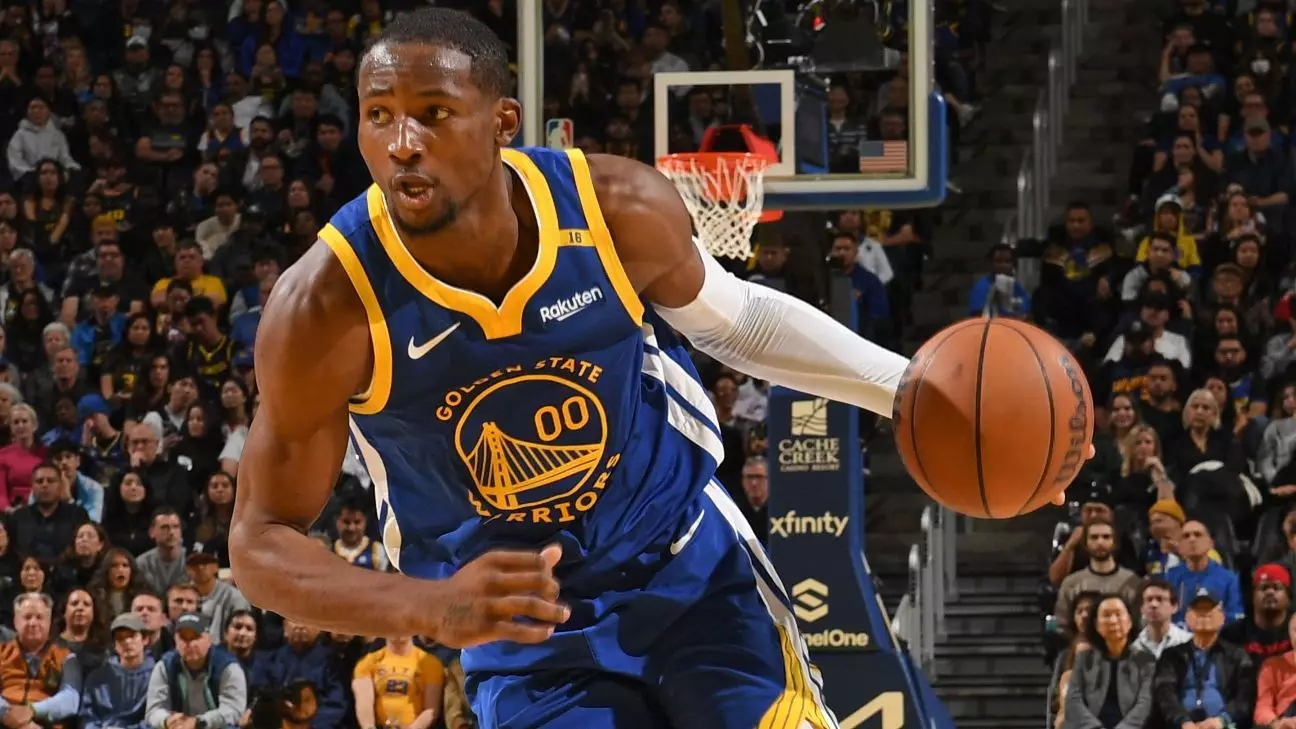Jonathan Kuminga’s current stance in negotiations with the Golden State Warriors signals a growing demand for respect and clarity in how young players are valued. As a restricted free agent, Kuminga’s hesitation to accept the Warriors’ latest offer underscores a broader conversation about the recognition of emerging talent in professional basketball. It’s not merely about dollars but about dignity, opportunity, and the fundamental belief that a player’s contributions should align with the strategic importance he holds.
Kuminga’s reluctance reflects frustration with what he perceives as inadequate acknowledgment of his potential. Despite the Warriors’ efforts to present a competitive offer—likely the highest salary currently available—he remains unconvinced. This stubbornness, often misinterpreted as mere stubbornness, actually embodies a demand for fairness that transcends negotiations. It’s a stand against a system that sometimes undervalues young, evolving players whose roles are pivotal but not always immediately recognized.
Furthermore, Kuminga’s willingness to wait for a more suitable deal indicates a desire for clarity and confidence in his career path. Instead of rushing into a contract just for the sake of stability, he seeks an environment that affirms his worth and offers genuine opportunities for growth. His exploration of sign-and-trade options with teams like Phoenix and Sacramento reveals a proactive approach, signaling that he is not solely dependent on the Warriors but is willing to seek a setting where his contributions are truly valued.
This stance also puts pressure on the collective mechanisms of NBA negotiations, exposing the often-imbalanced power dynamics between veterans, superstars, and emerging talents. Kuminga’s case highlights the urgent need for the league to evolve its appreciation for developmental players who, with proper acknowledgment, can transform into franchise cornerstones. The struggle for fair compensation is not just about one player; it’s about establishing a standard that respects the future potential of young athletes.
The Broader Impact: A Reflection of League-wide Trends and Player Empowerment
The current climate of NBA free agency, marked by a cold market for restricted free agents, underscores a systemic issue: teams are reluctant to offer lucrative contracts without guaranteed roles. The limited cap space across the league and the cautious approach of franchises have resulted in a negotiation stalemate that disproportionally affects rising talents like Kuminga. This hesitance to invest heavily in developing players reflects a broader shift toward favoring established stars and cautious roster management.
Kuminga’s situation sheds light on a troubling trend where young players are caught between the desire for respectful pay and the realities of a cautious market. His quest for a more significant, guaranteed role—something that teams like Phoenix and Sacramento have promised—exposes a tension: the importance of a player’s development environment versus a team’s immediate win-now mentality.
By holding out and exploring options beyond the Warriors, Kuminga champions a new form of player agency—an assertion that emerging talents should have a voice and power in determining their career trajectory. His willingness to wait for a package that aligns with his aspirations is an act of empowerment, setting a precedent in a league often criticized for its hierarchical and sometimes exploitative approach to player negotiations.
Kuminga’s stance emphasizes that talent alone is not enough; opportunity and recognition matter equally. His refusal to accept a diminished or secondary role exemplifies a desire to break free from the old guard’s mentality—one where young players are merely seen as assets rather than future leaders. The NBA must grapple with whether it values potential as much as experience and veteran stability.
The Tension Between Aspirations and Reality: The Warriors’ Strategic Calculations
The Warriors’ approach to Kuminga’s contract negotiations reveals their careful balancing act. Having not yet finalized other offseason moves, the team’s focus has been heavily skewed toward resolving this one issue. Their readiness to wait and pivot only once they find a solution indicates an underlying confidence in their overall strategy—one that hinges on stability and roster flexibility.
Yet, the Warriors’ reluctance to stretch for a sign-and-trade deal with teams like Phoenix or Sacramento—especially given Phoenix’s lack of first-round picks—exposes a cautious conservatism rooted in financial prudence. This approach, while seemingly prudent, risks alienating a promising young star like Kuminga who is seeking more than just monetary compensation but meaningful participation.
Their emphasis on acquiring veteran shooters like Al Horford and bench contributors such as Seth Curry and De’Anthony Melton signals an understanding that their current roster needs a recalibration. However, this focus on short-term fixes could come at the expense of nurturing young talent. Kuminga’s situation exposes a potential oversight: the long-term value of trusting and developing rising stars versus the immediate need for veteran contribution.
The Warriors’ careful stalling underscores a critical philosophical debate—should a team prioritize immediate success by leveraging seasoned veterans, or invest in their future through young players like Kuminga? If they continue to delay, they risk losing a player who has demonstrated the ability to deliver when given the platform. This tug-of-war between patience and pragmatism reflects a broader league-wide struggle to balance short-term wins with long-term growth.
Ultimately, Kuminga’s fight for a fair and substantial deal is not just about his contract but about redefining how young, talented players are perceived and valued. His stance pushes the boundaries of current NBA negotiations, prompting teams and leagues to reconsider the importance of player empowerment and fair treatment in the modern era of basketball.


Leave a Reply